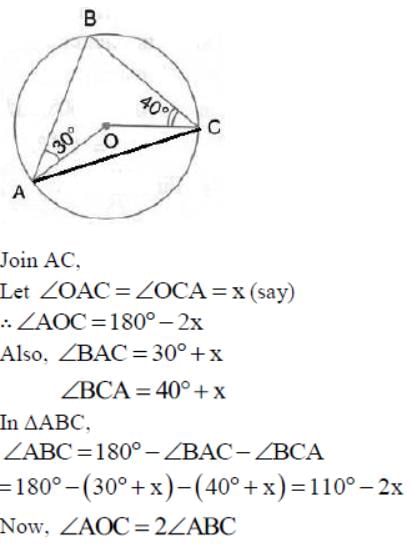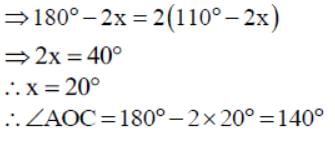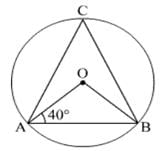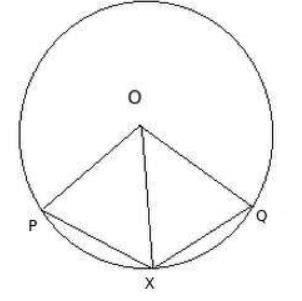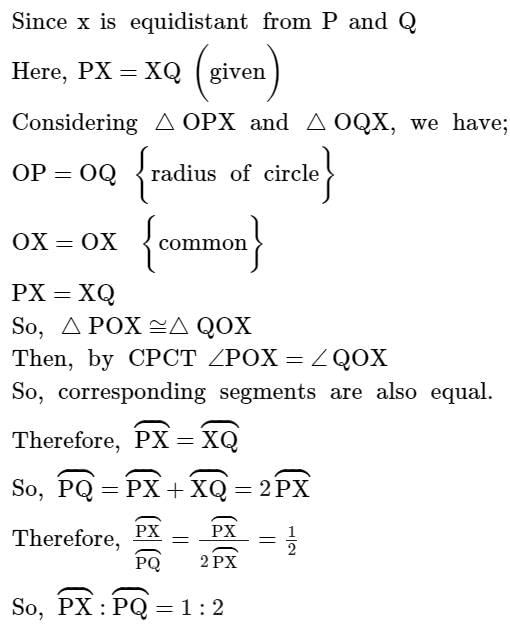Test: Circles- 2 - Grade 9 MCQ
25 Questions MCQ Test - Test: Circles- 2
AB is a chord of a circle with radius ‘r’. If P is any point on the circle such that ∠APB is a right angle , then AB is equal to
In the given figure, AC is a diameter of the given circle and ∠BCD = 75o. Then, ∠EAF−∠ABC is equal to
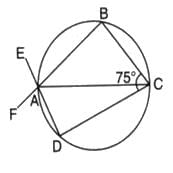

| 1 Crore+ students have signed up on EduRev. Have you? Download the App |
P is a point on the diameter AB of a circle and CD is a chord perpendicular to AB. If AP = 4 cm and PB = 16 cm, the length of chord CD is
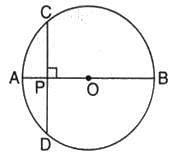
Arc ABC subtends an angle of 130o at the centre O of the circle. AB is extended to P. Then ∠CBP equals :
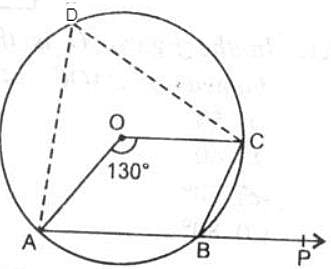
Chords AB and CD intersect at right angles. If ∠BAC = 40o, then ∠ABD is equal to
In the given figure, O is the centre of the circle. ∠OAB and ∠OCB are 40o and 30o respectively. Then, the measure of ∠AOC is
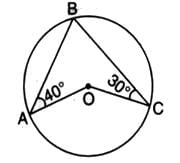
In the given, AB is side of regular five sided polygon and AC is a side of a regular six sided polygon inscribed in the circle with centre O. AO and CB intersect at P, then ∠APB is equal to
In the given figure, if ∠AOB = 80o and ∠ABC = 30o , then ∠CAO is equal to
In the figure, O is the centre of eh circle and ∠AOB = 80o. The value of x is :
In the given figure if OA = 5 cm, AB = 8 cm and OD is perpendicular to AB, then CD is equal to
Chords AD and BC intersect each other at right angles at point P. ∠DAB = 35o, then ∠ADC is equal to
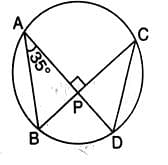
In the given figure, AB is a diameter of the circle APBR. APQ and RBQ are straight lines. If ∠A = 35o and , then the measure of ∠PBR is
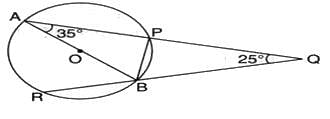
In the figure, O is the center of the circle. If ∠OAB = 40o, then ∠ACB is equal to :
X is a point on a circle with centre O. If X is equidistant from the two radii OP, OQ, then arc PX : arc PQ is equal to
BC is a diameter of the circle and ∠BAO = 60o . Then ∠ADC is equal to
What fraction of the whole circle is minor arc RP in the given figure ?
In the given figure, AD is the diameter of the circle and AE = DE. If ∠ABC = 115o, then the measure of ∠CAE is
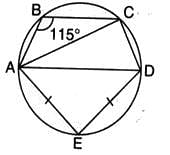
In the figure, if ∠DAB = 60o, ∠ABD = 50o, then ∠ACB is equal to :
If ABCD is a cyclic trapezium in which AD ║ BC and ∠B = 70o, determine other three angles of the trapezium.
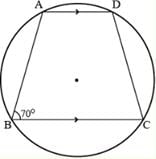
In the given figure, O is the centre of the circle and ∠AOC = 130o. Then ∠ABC is equal to
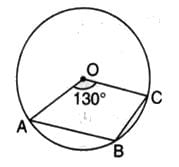
In the given circle, O is the centre and ∠BDC = 42o. Then, ∠ACB is equal to
AOB is the diameter of the circle. If ∠AOE = 150o, then the measure of ∠CBE is
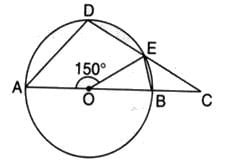
In the given figure, a circle is centred at O. The value of x is :




